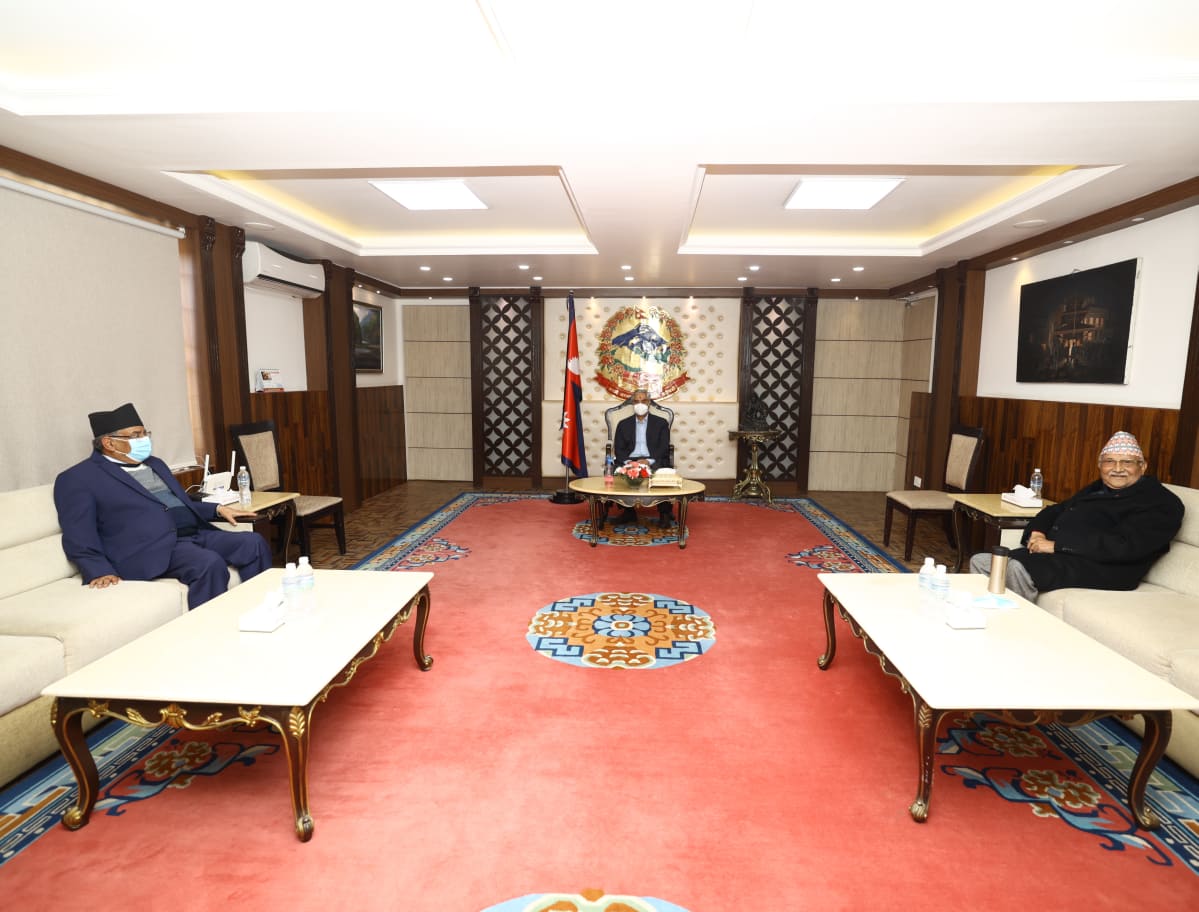KATHMANDU, Sept 17: The streets shook with the voices of Nepal’s youngest generation earlier this month. The Gen-Z movement demanded accountability, reform, and above all, the passing of the political baton to new hands. But inside the corridors of power, little seems to have changed. The top leaders of Nepal’s major political parties—men who have dominated politics for decades—remain firmly in their seats, showing no sign of stepping down.
In the Nepali Congress (NC), the push for renewal is muted. General Secretaries Gagan Thapa and Bishwa Prakash Sharma have been vocal about confronting weaknesses and reconnecting with the people, yet the party’s long-time president, Sher Bahadur Deuba, has remained silent. Deuba, now recovering in hospital after being injured during the protests, has offered no signal of resignation. Even the party’s second-rung leaders are cautious, waiting for his return before daring to broach the question of succession. Many still whisper that the next leader might once again come from the older generation.
I do not have desire to cling onto power: Outgoing Minister Shr...

Across town, the CPN-UML headquarters is no different. Chairperson KP Sharma Oli has stayed out of reach, shielded by security and silence. Party insiders say even senior leaders have received no direct communication from him. General Secretary Shankar Pokhrel, in carefully measured words, insists that leadership questions will be addressed “at the appropriate time.” Others—like Pradeep Gyawali and Yogesh Bhattarai—emphasize internal reforms over succession, reflecting the party’s reluctance to openly debate Oli’s future.
The reality is clear: while younger leaders such as Ushakiran Timilsina press for change, Oli’s loyalists are already rallying to keep him in power. The recent statutory convention, which endorsed him for a third term, has further dampened any hope for open leadership contest. For now, the party’s old guard remains unchallenged.
The CPN (Maoist Center), however, has shown a rare crack in its wall of deference. Deputy General Secretary Janardan Sharma has openly called for Chair Pushpa Kamal Dahal’s resignation. His 16-point proposal demands not only Dahal’s immediate exit but also sweeping reforms—ranging from a new electoral system with a directly elected executive to independent commissions investigating corruption and assessing losses from the protests. Sharma argues that the Gen-Z uprising laid bare the rot in governance and that the party must seize this moment to rebuild trust. His challenge, though bold, echoes past attempts that Dahal has weathered.
Still, murmurs of discontent are growing. Other Maoist leaders are quietly rallying behind Sharma’s call for generational change. The CPN (Unified Socialist) too is reportedly weighing its own transition, though it has yet to make any announcement. Madhesh-based parties, meanwhile, remain silent—watching, perhaps, to see whether this new wave of agitation has staying power.
For now, Nepal’s politics remains frozen between two worlds: the youthful impatience for change seen on the streets and the stubborn grip of aging leaders inside party offices. Whether the Gen-Z movement can truly force the torch to be passed—or whether history will repeat itself with the same faces at the helm—remains the question hanging over the nation’s uncertain future.



































